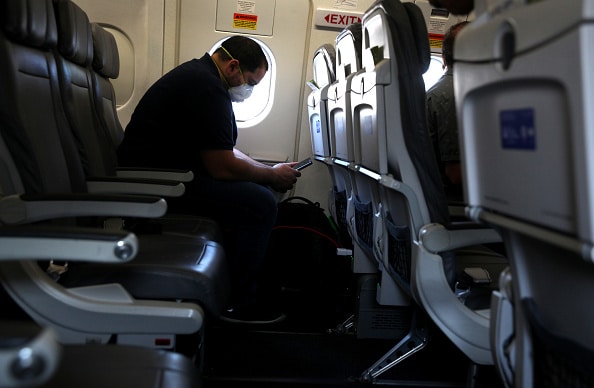TOPLINE
The World Health Organization on Friday assigned the name “omicron” to a new, heavily mutated variant of coronavirus found in South Africa that has sparked fears of a more transmissible, possibly vaccine-resistant virus and sent shockwaves through global markets as governments around the world bar travel from the region.
KEY FACTS
Omicron — or B.1.1.529 — was designated as a variant of concern by the WHO, which encouraged countries to boost virus surveillance and sequencing efforts, to study the variant and to report any cases and clusters driven by omicron to the global health agency.
Scientists fear the variant may be more transmissible than other strains and able to evade the immunity from vaccination due to the high number of mutations it has, including more than 30 on the spike protein, which many vaccines train the immune system to target.
The U.S. became the latest country to announce new travel restrictions for South Africa and surrounding countries over the variant, following the U.K., France, Italy, Germany, Israel and Japan.
Novavax said Friday it had begun working on a coronavirus vaccine designed to prevent omicron infection, saying doses could be ready for testing and manufacturing within weeks, according to Reuters.
Loading...
BioNTech is investigating whether its vaccine with Pfizer is effective against omicron, saying Friday the the company will know within two weeks and could ship out doses of an updated vaccine within the next 100 days, according to the Guardian.
TANGENT
News of the variant triggered a selloff across global markets, with the Dow and Japan’s Nikkei 225 dropping more than 2.5% and the FTSE100, France’s CAC40 and Germany’s DAX all down by between 3.2% and 4.3%.
KEY BACKGROUND
Researchers detected B.1.1.529 in South Africa this week, where it appears to be driving a dangerous surge of infections in the country’s Gauteng province and cases have since been found in Hong Kong, Belgium, Israel and Botswana, where the variant was first identified using genome sequencing. Experts believe the new variant may be rapidly replacing the delta variant in affected regions and already accounts for some 75% and 90% of the cases being sequenced in Botswana and Gauteng, respectively. Mutations are a normal and expected part of viral evolution and many have no impact on the virus’ behavior at all. A great deal remains unknown about the variant and scientists are racing to figure out whether it is able to evade vaccine protection or is more transmissible. The very high number of mutations—and in areas relevant to vaccine-derived immunity—are what surprised and shocked scientists. The WHO has stressed caution and urged countries to make decisions like travel bans rationally and in proportion to the known risks.
FURTHER READING
U.K. And Israel Impose Restrictions On Travelers From Southern Africa Over New Covid Variant (Forbes)
Loading...
